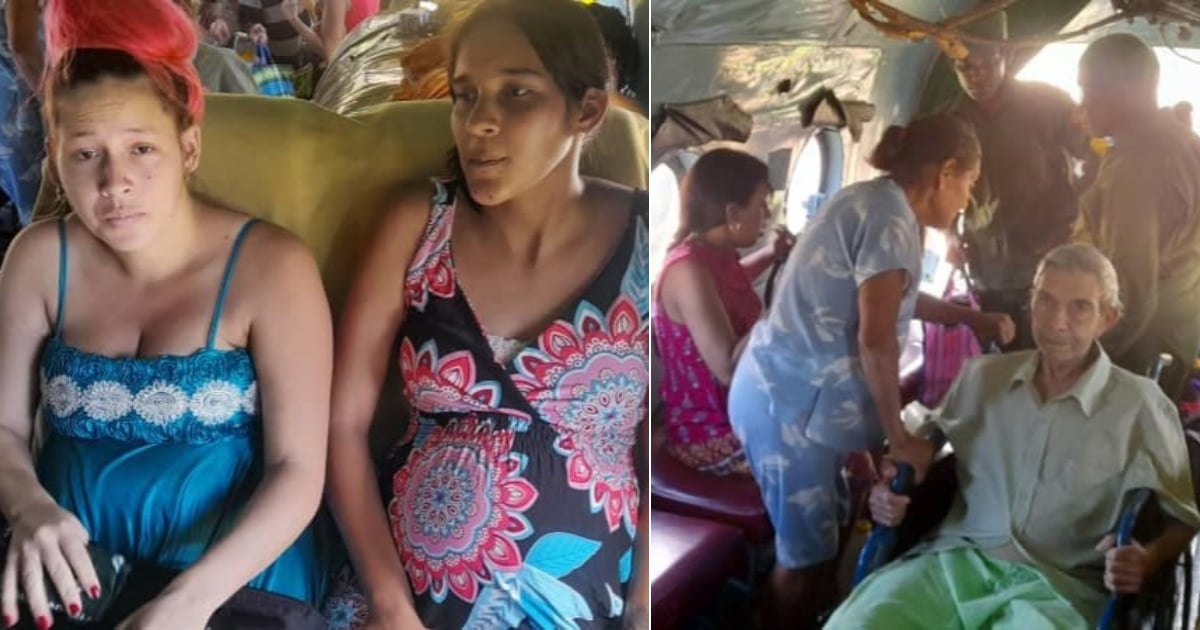On Thursday, a Cuban military helicopter conducted a rescue operation to evacuate pregnant women, critical patients, and other vulnerable individuals from isolated areas in Guantánamo, following the devastating passage of Hurricane Oscar through Cuba's eastern region. The official profile of the Eastern Army shared this update, highlighting that after multiple flights delivering food supplies, a military helicopter undertook "the evacuation of several full-term expectant mothers, patients requiring intensive care, and an infant with their mother."
Specific details regarding the destination of these evacuees remain undisclosed. These individuals are among the thousands who have been relocated due to unprecedented floods that have ravaged and isolated communities in the municipalities of Imías and San Antonio del Sur. According to the Eastern Army's post, the helicopter crew expressed, "We expect nothing in return; our satisfaction lies in fulfilling our duty and being of service."
The report praises the helicopter crew's dedication, describing it as "a reflection of the daily efforts when a nation rallies to support its people." The publication labels this operation as a "battle for life and health," a narrative often highlighted in the regime's propaganda as a triumph of the revolution. Nonetheless, discrepancies in the numbers of evacuees have emerged across government sites and official media, with no clear timeline for their relocation to safer areas.
While the newspaper Granma reported over 15,000 residents evacuated—9,000 from Imías and 6,000 from San Antonio del Sur—the "Mesa Redonda" program cited Major César Eduardo Cross Licea, the Deputy Chief of the National Civil Defense General Staff Operations Department, saying, "4,865 individuals are sheltered in evacuation centers," and "another 443 remain safeguarded in the homes of relatives, friends, and neighbors, with their safety and nourishment assured until the recovery phase is declared."
Meanwhile, rescue operations continue as search parties look for entire families reported missing. Rescue and salvage teams are attempting to locate individuals lost in both municipalities due to mudslides and the overflow of rivers and dams.
On Thursday, the Ministry of the Armed Forces (MINFAR) announced "an aerial mission to deliver food to Imías," as this municipality remains cut off by land due to the severe damage caused by the hurricane. Recent days have seen residents of San Antonio del Sur and Imías, the hardest-hit areas, along with relatives living outside the province or abroad, voicing criticism over the government's inadequate response to preempt and mitigate the hurricane's impact on these communities.
Critics argue that authorities failed to provide advance warning about the hurricane's path, knowing that the entire province was without power due to the collapse of the National Electric System (SEN). Furthermore, they claim that the Civil Defense system was not activated in a timely manner in these municipalities, nor were evacuation plans to higher and safer grounds implemented, leaving residents to fend for themselves.
As of today, the government has confirmed the deaths of seven individuals, six in San Antonio del Sur and one in Imías. However, testimonies from impacted residents cast doubt on the accuracy of official figures. A resident of San Antonio del Sur stated that the situation is far more dire, with fatalities and disappearances significantly exceeding the reported numbers.
Unofficial reports on Cuban social media suggest that the death toll exceeds twenty, with over seventy individuals missing. Authorities have yet to address these figures. In their desperation and uncertainty, families of missing persons have turned to social media, pleading for assistance in locating their loved ones.
